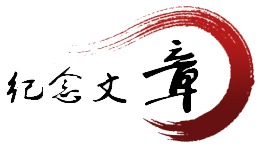
I am grateful for the opportunity to record some thoughts and remembrances of my interactions with Professor Ying-lai Wang, who became a dear, revered, and lasting friend—ever since we met him (International Congress of Biochemistry, Perth, Australia; 1982) and for the balance of his life.
Professor Wang had all the gloss and attributes of a gentleman of station, polish, and diplomacy. He invited praise and respect, represented the history of the past, and projected hope for the future to come. He was linguistically fluid, completely informed, charming as a British peer, and as knowledgeable as a European philosopher. My wife, Natalie and I considered it an enormous tribute to be welcomed and hosted by him in Shanghai.
Professor Wang was by then, an elder statesman—one with all the graces of his history and education. We were treated royally, with unheard of courtesy, aplomb, and generosity. Natalie and I were shown all that was considered to be the very best by Professors Wang and his student, Chen-lu Tsou, and their associates.
Wherever we were taken to see the imperial history of China, one item recurred as representative of Chinese heritage and culture: a slender and ornately carved piece of jade, known as Ruyi.
The Ruyi was described to us as an emblem of significant social standing, supremacy, and distinction and as time went by from distant habits and practices, that instrument, waived by a person of distinction, signified total and complete dominance. Ruyis were awarded to sovereign heirs and other figures of authority, including seemingly infinite numbers of wives of the emperors, all of whom were given this baton of jade. Natalie had inquired about the significance and nature of the device, its meaning, shape, dimension, and elegance. Yet, much to our dismay, we were unable to establish a suitable description, discussion, or explanation of its importance in Chinese society.
Against this background, one episode embodies our long-lasting relationship with Ying-lai Wang. At our last of many dinners in Shanghai, Professor Wang rose with a decorated box in hand, clearly meant to bear a major gift.
He said, “Professor Natalie Vallee, Chen-lu Tsou has asked me to present you with a gift of occasion, which will serve as a reminder of China’s tradition and of our affection and respect for you. I understand that you and Professor Bert Vallee have been very curious about the Ruyi and its role in history. In fact, Professor Natalie, you made it clear to Chen-lu that you were trying to locate a Ruyi, as a birthday present for Professor Bert Vallee. I have here in my hand, a facsimile of a Ruyi that was once owned by one of the empresses.”
As he handed the ceremonial gift to Natalie, he said, “Professor Natalie, you asked for this as a symbol of your authority and standing.” Professor Wang then presented the box. “Here Professor Natalie is your Ruyi. May it symbolize my appreciation for your standing, kindness, elegance, and generosity.” He then added, “I stand in admiration of your devotion and respect for Professor Bert Vallee.”
Natalie turned in gratitude to Professor Wang and said, “You are very kind and extremely gracious, but I believe you are not correct in your conclusion. Though I may have given away my standing in society, this transformation is not a social problem, AS LONG AS I WILL CONTINUE TO REMAIN THE CHIEF RUYI, NO MATTER WHAT.”
Professor Wang’s exemplary sentiments of kindness, hospitality, respect, and friendship reflected in the many subsequent years of our affectionate interactions, which Professor Wang continued by way of a subsequent visit to Boston and our return to Shanghai for the celebration of his ninetieth Birthday. We will forever remember him as our true friend and extraordinary colleague.